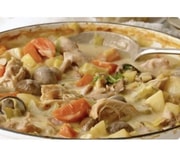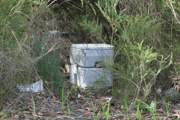New ban risks costing Australians $140,000, experts express fear
By
Gian T
- Replies 0
If you’ve bought a coffee, a meal, or even just a loaf of bread lately, chances are you’ve noticed a little extra charge tacked on when you tap your card.
These are known as card surcharges, and while they might seem like small changes—just a few cents here and there—they add up to a whopping $960 million a year across Australia.
But now, a government proposal to ban these surcharges on debit cards is causing a stir, with small business owners warning it could cost them tens, or even hundreds, of thousands of dollars a year.
So, what’s really going on, and how could this change affect you, your local café, and your weekly budget? Let’s break it down.
In an effort to help ease the cost of living, the Labor government has announced plans to ban debit card surcharges by the end of 2025.
The idea is simple: when you pay with your debit card, you won’t be hit with that extra 1–2 per cent fee at the checkout.
On the surface, it sounds like a win for consumers—no more surprise charges when you tap and go.
But as with many things in life, the devil is in the details.
Currently, when you pay with a card, businesses are allowed to pass on the cost of processing that payment—known as the merchant fee—directly to you as a surcharge.
If the ban goes ahead, someone else will have to foot the bill. The big question is: who?
Some argue that banks and card networks like Visa and Mastercard, which set the fees, should absorb the cost, while others suggest that payment service providers behind tap-and-go machines could also take a hit.
However, small businesses—cafés, restaurants, and shops—are most likely to end up bearing the burden.
And that’s where the trouble starts.
For many small businesses, profit margins are already razor-thin.
Wes Lambert, CEO of the Australian Restaurant and Cafe Association, says the hospitality industry is 'deathly afraid' of the proposed ban.
'For decades, they’ve been able to pass that fee on to consumers, but they don’t have enough profit in order to absorb that 1 to 2 per cent in merchant fees,' he explains.
Take Dan Dick, who runs four cafés in Melbourne. He estimates he pays around $25,000 a year in merchant fees just to accept card payments.
If he can’t pass those costs on, he’ll have to either absorb them (which could mean making less money or even running at a loss) or raise his prices.
David Basheer, owner of the Strathmore Hotel, says he passes on about $140,000 in surcharges to customers each year.
'No business our size can wear that,' he says.
'If we can’t have cost recovery through surcharges, then we have to look at other ways.'
While the ban is designed to save you a few cents at the checkout, experts warn it could actually end up costing you more in the long run.
If businesses can’t pass on the surcharge, they’ll likely raise their prices across the board to cover the cost.
That means you could end up paying 20, 30, or even 50 cents more for your morning coffee—much more than the 5–10 cent surcharge you’re used to.
Wes Lambert warns: 'The potential surcharge ban is actually going to turn into an inflationary pressure for menu prices.'
Let’s put it in perspective. Australians eat or drink out about 61 times a year on average.
With over 20 million adults in the country, that’s more than 1.2 billion payments every year—most of them by card.
If every one of those transactions costs businesses an extra 5–10 cents, the numbers add up fast.
According to the Independent Payments Forum, small businesses pay around $1.3 billion in merchant fees yearly.
For a $5 coffee, the merchant fee is typically between 4 and 10 cents. If businesses can’t pass that on, they’ll have to find the money somewhere else.
The big banks are divided on the issue: Commonwealth Bank supports banning both credit and debit surcharges, while Westpac backs a ban on debit surcharges only.
NAB opposes any ban, and ANZ is calling for a uniform approach with a broader review of all surcharges, including those tied to buy-now-pay-later services.
Interestingly, Visa and Mastercard support a ban on debit and credit surcharges.
A recent poll of over 1,500 people found that 75 per cent believe the banks should absorb the cost, not small businesses.
But industry experts say that’s unlikely to happen and that the burden will almost certainly fall on local shops and cafés.
The proposal is still in the consultation phase, with the Reserve Bank of Australia (RBA) investigating the issue.
The government hopes to have the ban in place by January 2026, but there’s still a lot to work out—especially who will ultimately pay.
What can you do? Support local businesses by understanding that price increases at your favourite café or shop aren’t about gouging—they’re about staying afloat.
Using cash, though now only used in 13 per cent of transactions, can help these businesses avoid costly merchant fees.
And finally, stay informed as the government and RBA continue to work through the details.
In other news, Australians are being hit with surcharges as high as 25 per cent on Sundays and public holidays, prompting debate.
Prime Minister Albanese questioned whether these charges are fair, highlighting their effect on hospitality workers' pay. You can read more about it here.
 What do you think about the proposed ban on card surcharges? Would you rather pay a small surcharge or see prices go up across the board? Should the banks be forced to absorb the cost? Share your thoughts in the comments below.
What do you think about the proposed ban on card surcharges? Would you rather pay a small surcharge or see prices go up across the board? Should the banks be forced to absorb the cost? Share your thoughts in the comments below.
These are known as card surcharges, and while they might seem like small changes—just a few cents here and there—they add up to a whopping $960 million a year across Australia.
But now, a government proposal to ban these surcharges on debit cards is causing a stir, with small business owners warning it could cost them tens, or even hundreds, of thousands of dollars a year.
So, what’s really going on, and how could this change affect you, your local café, and your weekly budget? Let’s break it down.
In an effort to help ease the cost of living, the Labor government has announced plans to ban debit card surcharges by the end of 2025.
The idea is simple: when you pay with your debit card, you won’t be hit with that extra 1–2 per cent fee at the checkout.
On the surface, it sounds like a win for consumers—no more surprise charges when you tap and go.
But as with many things in life, the devil is in the details.
Currently, when you pay with a card, businesses are allowed to pass on the cost of processing that payment—known as the merchant fee—directly to you as a surcharge.
If the ban goes ahead, someone else will have to foot the bill. The big question is: who?
Some argue that banks and card networks like Visa and Mastercard, which set the fees, should absorb the cost, while others suggest that payment service providers behind tap-and-go machines could also take a hit.
However, small businesses—cafés, restaurants, and shops—are most likely to end up bearing the burden.
And that’s where the trouble starts.
For many small businesses, profit margins are already razor-thin.
Wes Lambert, CEO of the Australian Restaurant and Cafe Association, says the hospitality industry is 'deathly afraid' of the proposed ban.
Take Dan Dick, who runs four cafés in Melbourne. He estimates he pays around $25,000 a year in merchant fees just to accept card payments.
If he can’t pass those costs on, he’ll have to either absorb them (which could mean making less money or even running at a loss) or raise his prices.
David Basheer, owner of the Strathmore Hotel, says he passes on about $140,000 in surcharges to customers each year.
'No business our size can wear that,' he says.
'If we can’t have cost recovery through surcharges, then we have to look at other ways.'
While the ban is designed to save you a few cents at the checkout, experts warn it could actually end up costing you more in the long run.
If businesses can’t pass on the surcharge, they’ll likely raise their prices across the board to cover the cost.
That means you could end up paying 20, 30, or even 50 cents more for your morning coffee—much more than the 5–10 cent surcharge you’re used to.
Wes Lambert warns: 'The potential surcharge ban is actually going to turn into an inflationary pressure for menu prices.'
Let’s put it in perspective. Australians eat or drink out about 61 times a year on average.
With over 20 million adults in the country, that’s more than 1.2 billion payments every year—most of them by card.
According to the Independent Payments Forum, small businesses pay around $1.3 billion in merchant fees yearly.
For a $5 coffee, the merchant fee is typically between 4 and 10 cents. If businesses can’t pass that on, they’ll have to find the money somewhere else.
The big banks are divided on the issue: Commonwealth Bank supports banning both credit and debit surcharges, while Westpac backs a ban on debit surcharges only.
NAB opposes any ban, and ANZ is calling for a uniform approach with a broader review of all surcharges, including those tied to buy-now-pay-later services.
Interestingly, Visa and Mastercard support a ban on debit and credit surcharges.
A recent poll of over 1,500 people found that 75 per cent believe the banks should absorb the cost, not small businesses.
But industry experts say that’s unlikely to happen and that the burden will almost certainly fall on local shops and cafés.
The proposal is still in the consultation phase, with the Reserve Bank of Australia (RBA) investigating the issue.
The government hopes to have the ban in place by January 2026, but there’s still a lot to work out—especially who will ultimately pay.
What can you do? Support local businesses by understanding that price increases at your favourite café or shop aren’t about gouging—they’re about staying afloat.
And finally, stay informed as the government and RBA continue to work through the details.
In other news, Australians are being hit with surcharges as high as 25 per cent on Sundays and public holidays, prompting debate.
Prime Minister Albanese questioned whether these charges are fair, highlighting their effect on hospitality workers' pay. You can read more about it here.
Key Takeaways
- The Australian Government plans to ban debit card surcharges by January 2026, which has sparked major concerns among small businesses, especially in the hospitality sector.
- Many small business owners say absorbing card payment fees (previously passed on to customers via surcharges) could cost them tens or even hundreds of thousands of dollars a year, leading to higher consumer prices.
- There is broad debate about who should bear the cost, with most Australians in a poll favouring banks to absorb the fees, but industry leaders say this is unlikely, and the costs will be passed on to consumers through higher menu prices.
- The issue is still under consultation, with stakeholders including the government, the Reserve Bank, banks, card networks, and business groups yet to agree on how the changes should be implemented and who should be responsible for the fees.








